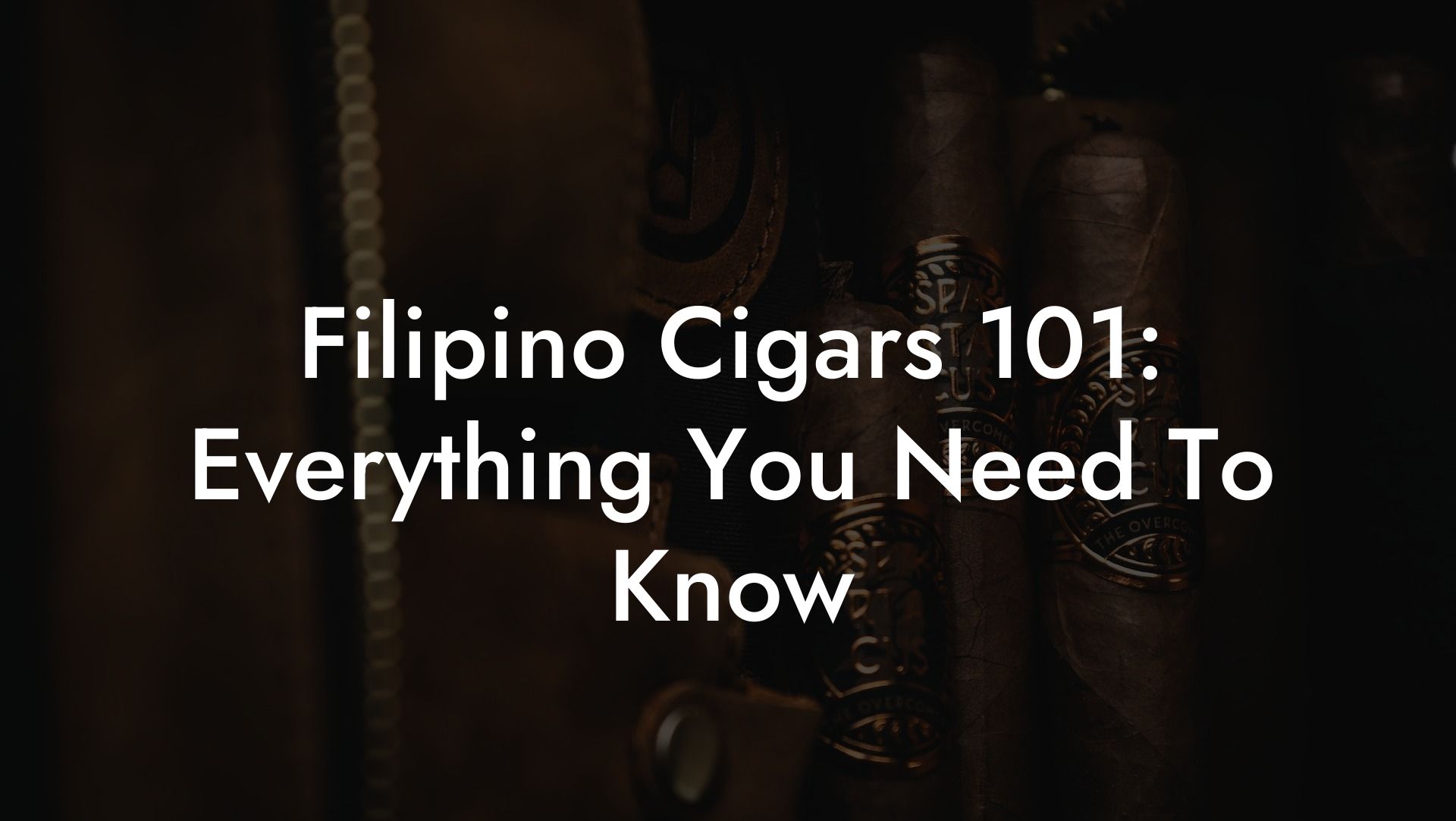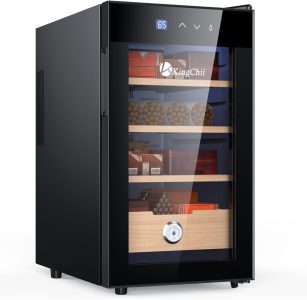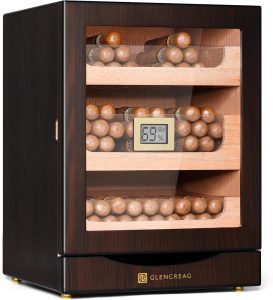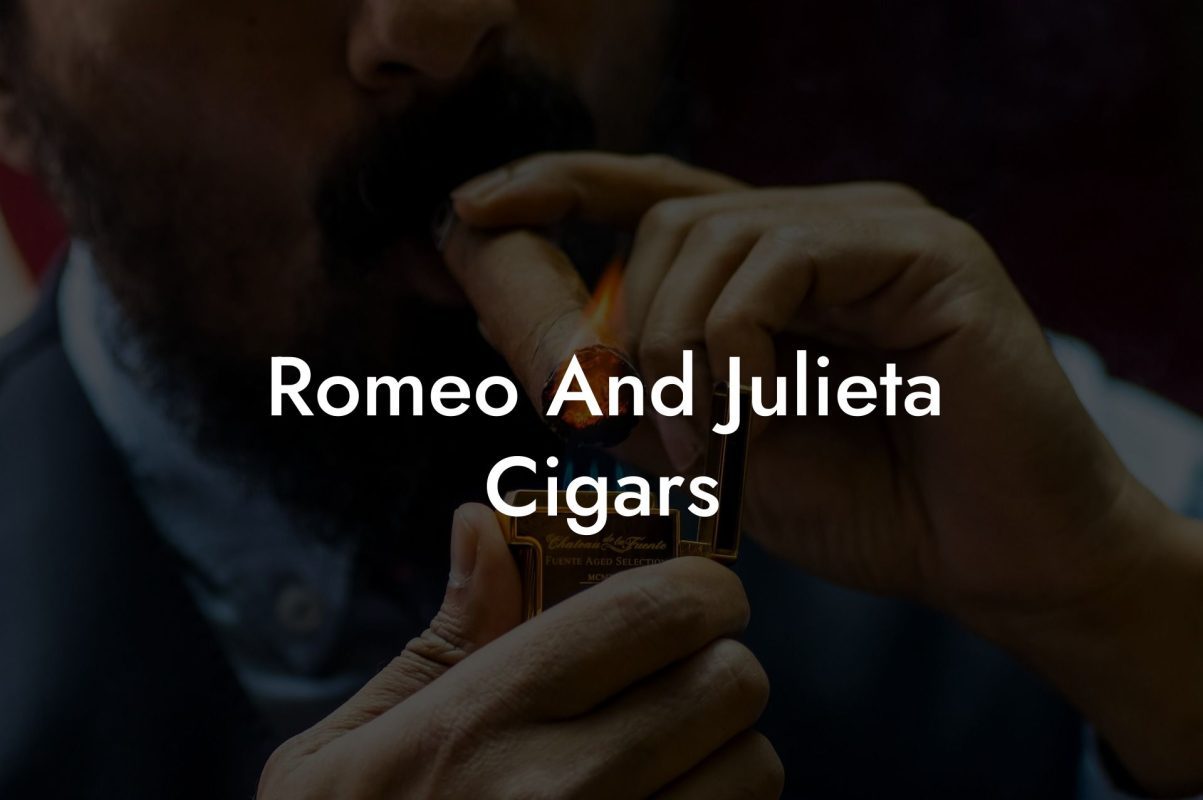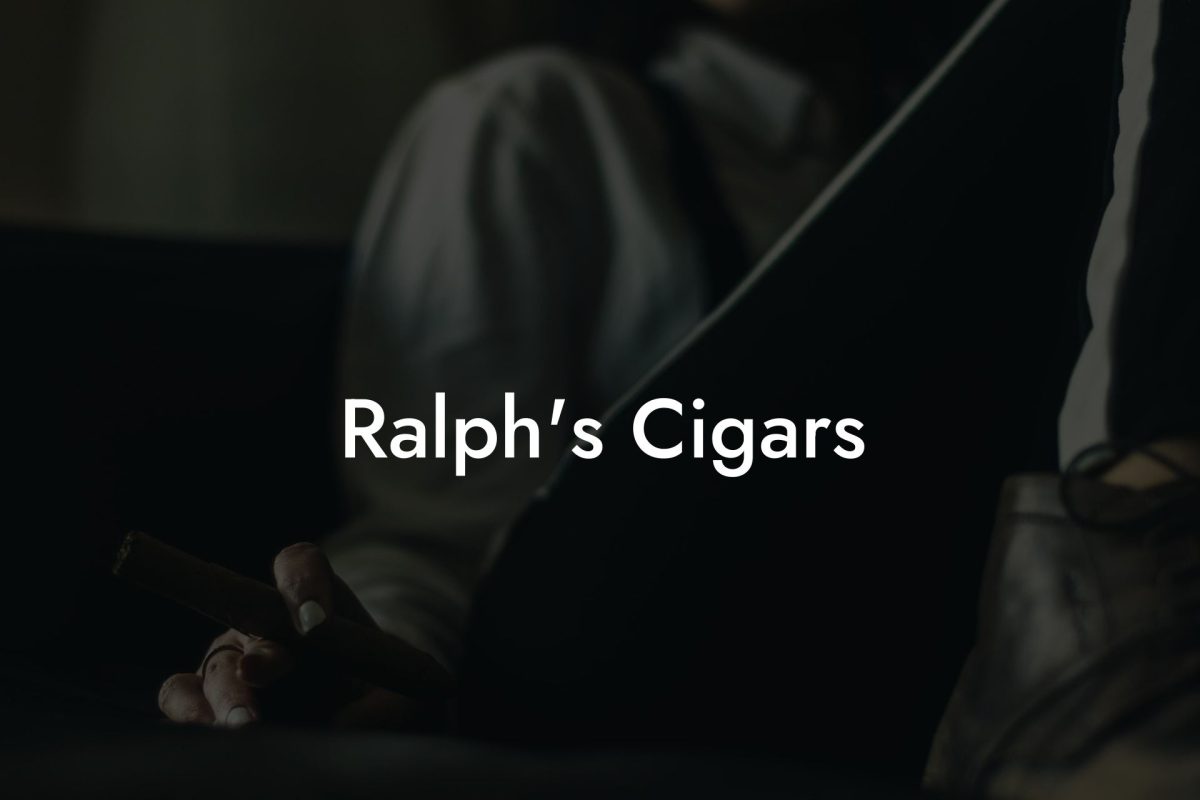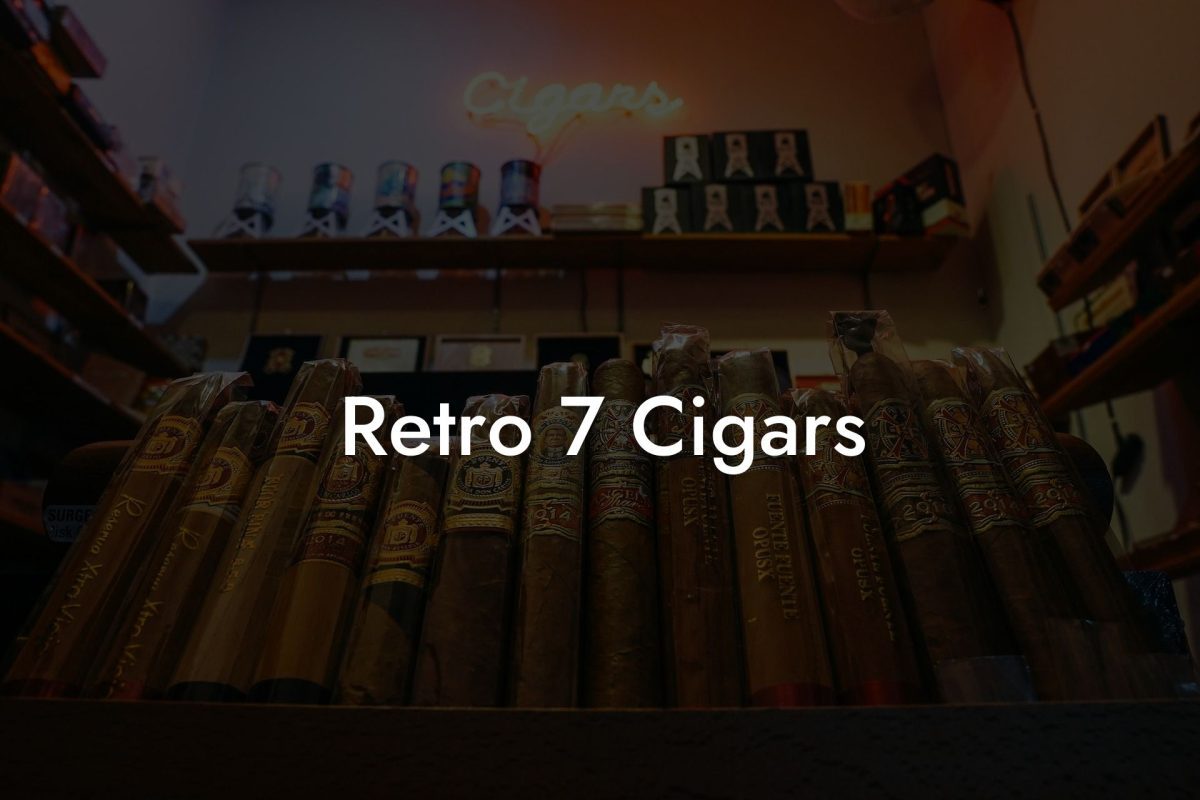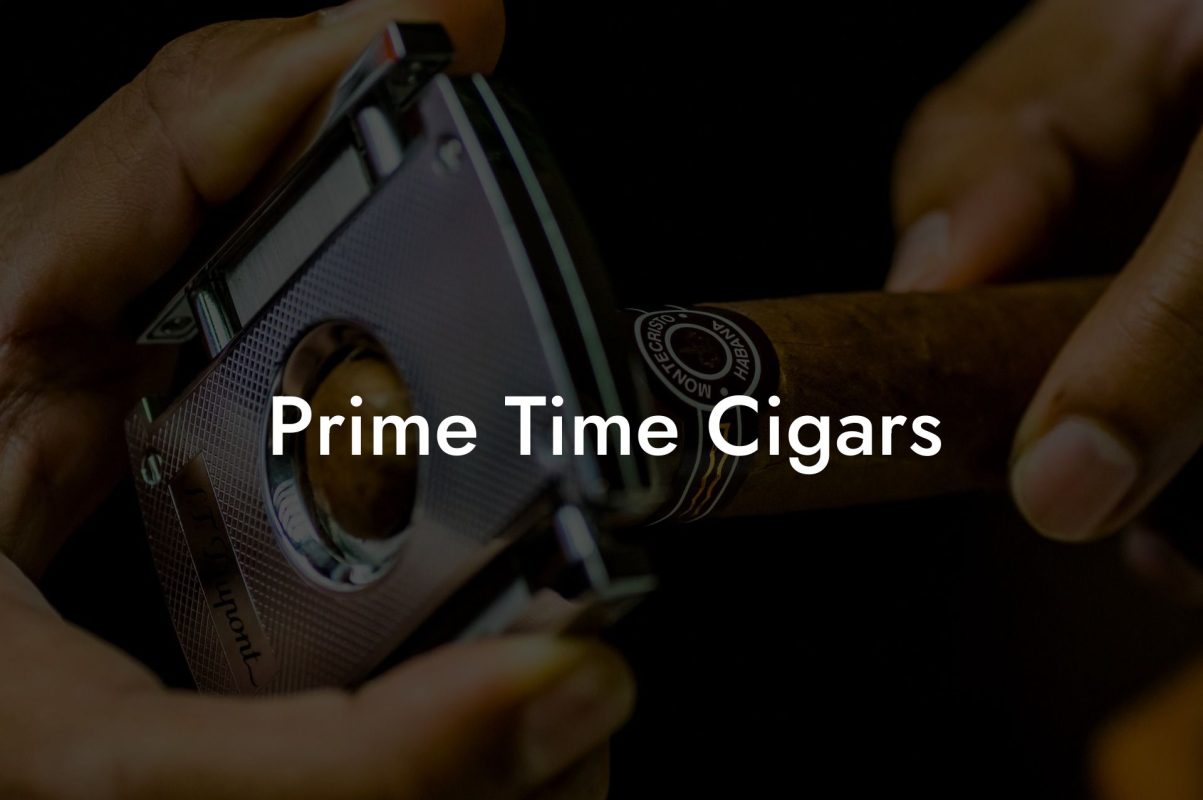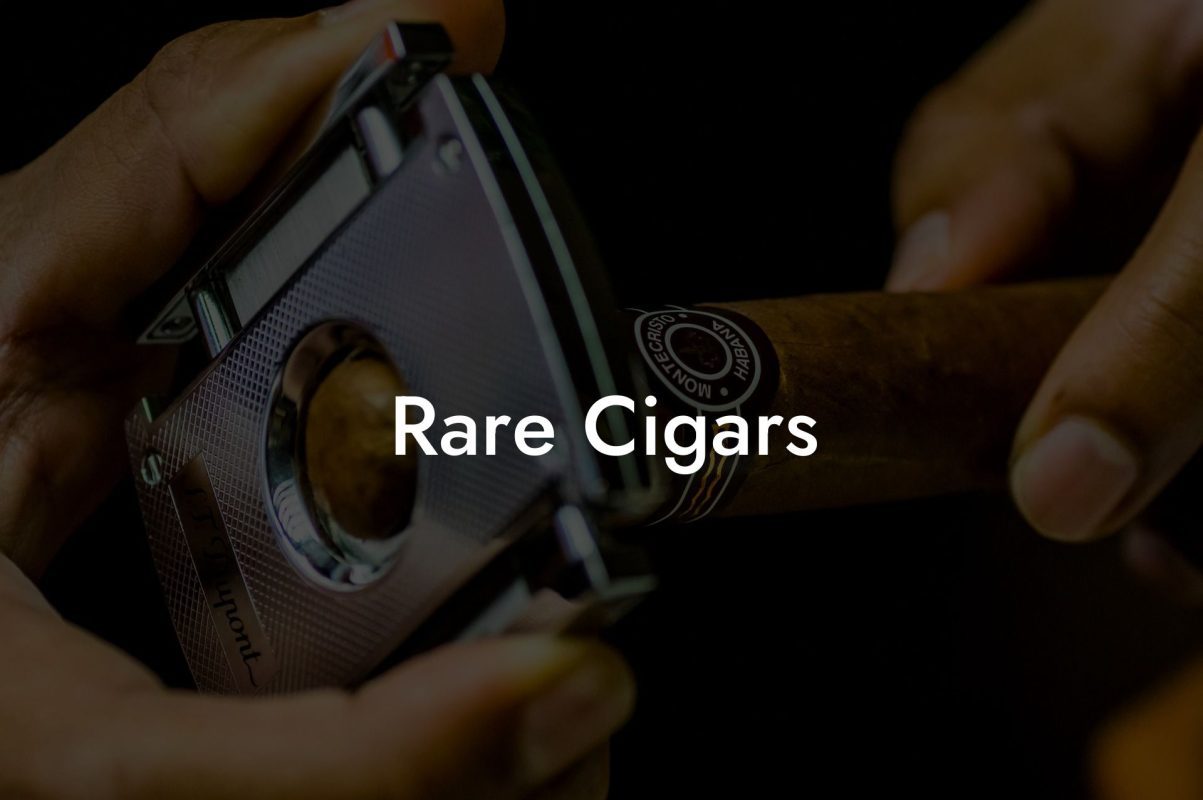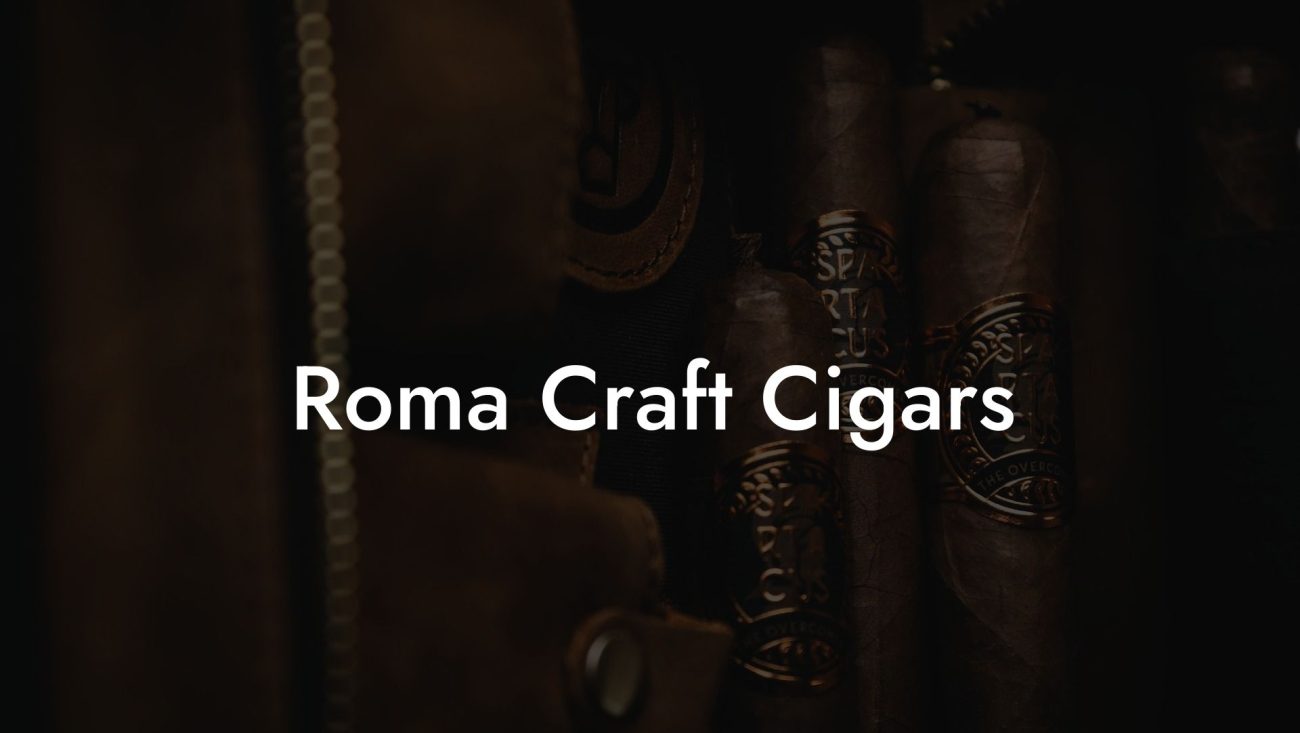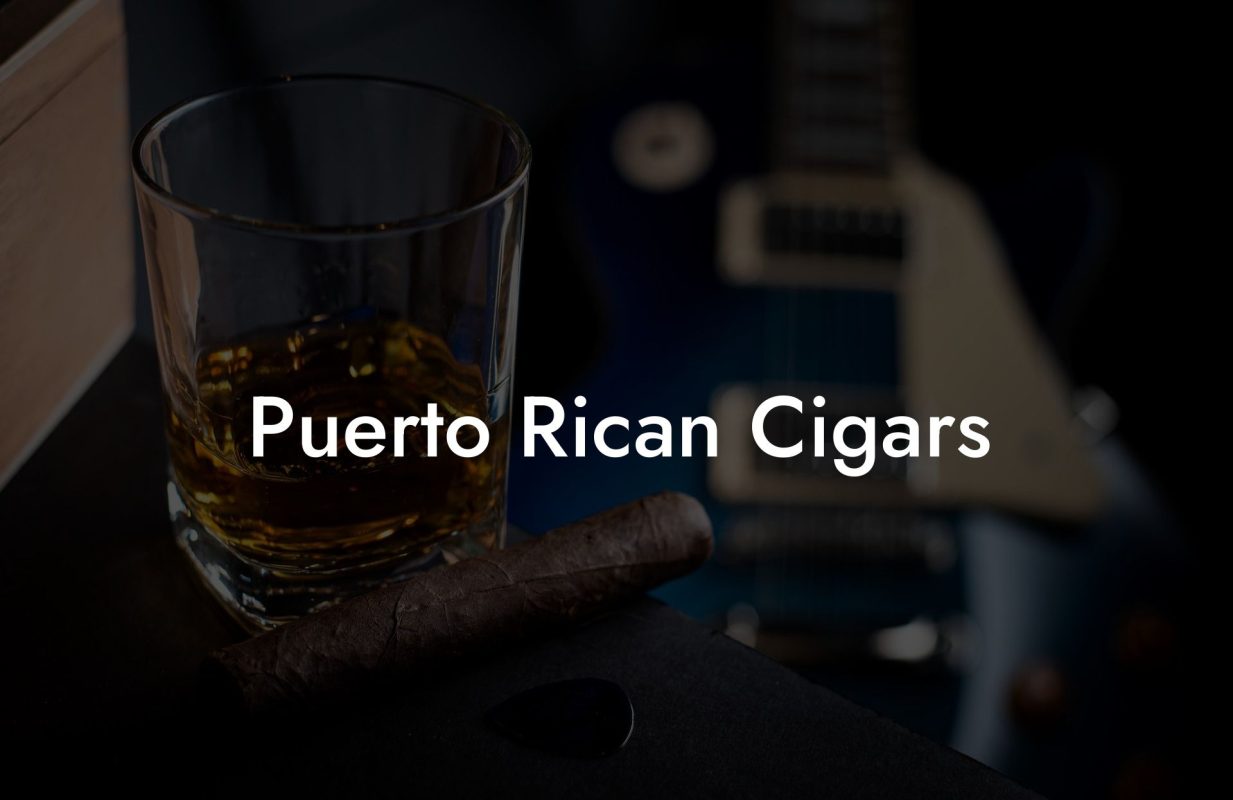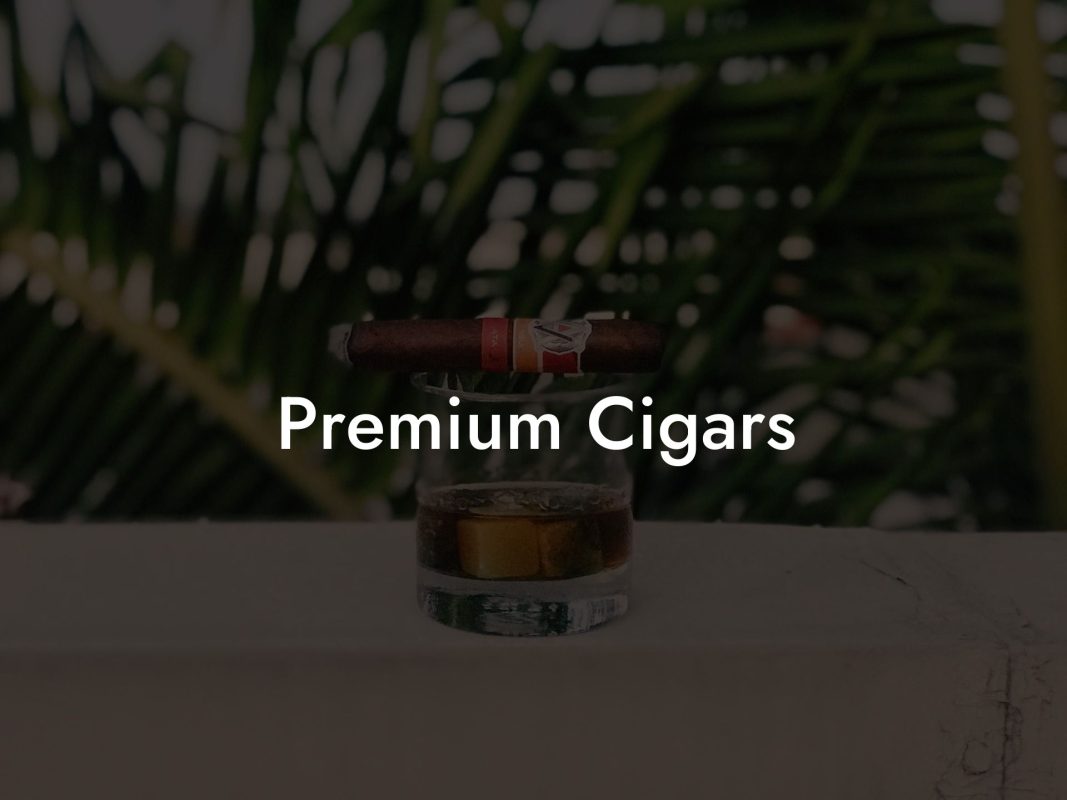Old-school luxury meets modern swagger in the world of Filipino cigars—where rich, bold flavors and a heritage steeped in tradition collide with the vibrant, trendsetting energy of Gen-Z and millennial connoisseurs. If you’ve ever been curious about how Filipino cigars stack up against the legendary Cuban or Dominican varieties, get ready: you’re about to dive deep into a culture bursting with passion, meticulous craftsmanship, and a story that’s as captivating as the first puff on a cool night.
Filipino Cigars 101: Everything You Need To Know Table of Contents
Discovering Filipino Cigars: A Cultural and Flavorful Journey
The Rich History and Cultural Significance of Filipino cigars
The Art of Crafting Filipino Cigars
Types and Styles: Exploring the Diversity within Filipino Cigars
Flavor Profiles and Tasting Tips: A Sensory Adventure
Smoking Rituals and Etiquette: More Than Just a Puff
Pairing Filipino Cigars with Lifestyle and Leisure
Understanding Aging, storage, and the Science Behind It
Modern Trends and the Future of Filipino Cigar Culture
Where to Buy and How to Choose: Navigating the Filipino Cigar Marketplace
Resources and Community Support: Your Next Steps
Discovering Filipino Cigars: A Cultural and Flavorful Journey
Filipino cigars aren’t just rolled tobacco wrapped in leaves; they’re a celebration of history, art, and the relentless spirit of innovation. While the Philippines may be more widely known for its fiesta culture, vibrant street food, and stunning beaches, it’s also home to a burgeoning cigar movement that marries indigenous tradition with modern artistry. Think of the intricate craftsmanship of ancient artisans meeting the bold experimentation of an urban lounge—this is Filipino cigars in a nutshell.
In this guide, we’re going to peel back the layers on everything you need to know about Filipino cigars—from their humble beginnings and rich cultural roots to the meticulous art of cigar crafting and the latest trends that are setting social media ablaze. Whether you’re a seasoned aficionado or a curious newbie with a penchant for discovery, prepare to embark on a sensory adventure that’s as informative as it is entertaining.
The Rich History and Cultural Significance of Filipino cigars
To really appreciate Filipino cigars, you first need a little background on how these masterpieces came to be. The evolution of tobacco in the Philippines dates back centuries. Early Spanish colonizers introduced tobacco farming to the archipelago, and over generations, local farmers refined cultivation techniques uniquely suited to the tropical climate and soil conditions.
This melding of Spanish influence and indigenous know-how led to a distinct tobacco flavor that’s robust yet subtly nuanced. Filipino cigars have grown from small-scale, artisanal production into a sophisticated niche market revered across Asia and beyond. They’re not just luxury items—they’re symbols of national pride, embodying centuries of tradition, regional diversity, and the entrepreneurial spirit of local communities.
Looking For The Best Cigar Humidors? You'll Love These:
Today, while many cigars in the international market remain dominated by Cuban and Dominican brands, Filipino cigars have been carving out their own space. They stand out with their earthy flavors, distinct aroma profiles, and a level of craftsmanship that’s as expressive as the diverse Filipino culture itself.
The Art of Crafting Filipino Cigars
Crafting a Filipino cigar is an art form that combines modern innovation with centuries-old farming methods. Here, every leaf tells a story—from the meticulously tended tobacco fields to the skilled hands of the torcedores (cigar rollers) who shape each cigar with precision and passion.
Hand-Rolled Heritage: Traditional hand-rolling techniques remain at the core of cigar production in the Philippines. Just as a painter uses a brush to create art, skilled torcedores use their hands to mold tobacco leaves into the perfect cigar wrapper. This handcrafted process ensures that each cigar is unique, exuding a personality that machines simply can’t replicate.
Sustainable Cultivation: Modern Filipino cigar makers are big on sustainability. Utilizing organic farming practices, many producers nurture tobacco plants without heavy reliance on chemicals, preserving the natural ecosystem and enhancing the flavor profile of the tobacco. This commitment to the environment is something that resonates strongly with eco-conscious Gen-Z and millennial smokers.
Expert Aging and Curing: The curing process is a finely tuned science. Tobacco leaves are carefully aged for months, sometimes years, in controlled environments. This critical step not only mellows out the potent flavors but also deepens the aromatic complexity of the cigars. The result? A cigar that delivers a nuanced, multi-layered flavor profile with every draw.
Whether you’re admiring a delicate, slow-burning smoke or indulging in a bold, full-bodied puff, you’re experiencing the culmination of tradition, attention to detail, and innovation—a true testament to the spirit of Filipino cigar production.
Types and Styles: Exploring the Diversity within Filipino Cigars
One of the most exciting aspects of Filipino cigars is their wide variety. Just as you can find countless playlists tailored for every mood on your favorite streaming app, the world of Filipino cigars offers something for every palate and occasion.
Premium Handcrafted Cigars: These are the crown jewels of Filipino cigar production. Made using traditional techniques and high-quality, locally sourced tobacco, these cigars boast an unrivaled flavor and aroma. They’re perfect for celebratory moments or a chill evening with your best mates.
Flavored and Infused Varieties: In an era where personalization is key, many modern cigar makers have ventured into infusing their cigars with subtle hints of local flavors—think hints of mango, coconut, or even the floral notes reminiscent of the Philippine wild flora. These innovative twists offer a refreshing alternative for those who enjoy a flair of experimentation.
Limited Edition Series: For the collectors and true aficionados, limited edition releases are like finding a rare vinyl record at a thrift shop. These cigars are produced in small batches, with each box reflecting a unique theme, story, or even a historical celebration.
Value and Everyday Selections: Not every smoke session calls for extravagance. There are plenty of quality Filipino cigars available at accessible price points, making them perfect for everyday enjoyment without breaking the bank.
With such diverse options, you can explore a range of experiences—from a crisp and refreshing light cigar to something deep, smoky, and intense. Every type speaks to a different facet of Filipino culture and craftsmanship.
Flavor Profiles and Tasting Tips: A Sensory Adventure
When it comes to cigars, flavor is everything. Filipino cigars offer a mesmerizing bouquet of tastes and aromas that evolve as you savor them. Whether you're a seasoned expert or a curious newcomer, here’s how to truly appreciate the flavor profile of these fine smokes.
Earthy and Robust: A common characteristic of Filipino cigars is their earthy base note. Expect hints of rich, fertile soil mixed with undercurrents of spice and a touch of sweetness that lingers on the tongue.
Balanced Complexity: The aging process brings out layers of complexity, with additional notes of leather, wood, and subtle floral touches. Each puff can transport you on a sensory journey, revealing hidden aspects that unfold gradually.
Pairing with Your Palate: To get the most out of your tasting experience, start with a clean palate—a glass of water, or even a light, refreshing beverage. As you savor the cigar, note how the flavor evolves and experiment with complementary pairings like dark chocolate, artisanal cheeses, or a robust cup of coffee. The goal is to create a harmonious blend of tastes that elevate your smoking ritual.
Step-by-Step Tasting:
- First Impression: Observe the aroma before taking your first puff; let the scent tell you the story of the blend.
- Initial Draw: Take a gentle draw to warm up your palate and prepare for the burst of flavors.
- Mid-Smoke Notes: As you reach the mid-section of the cigar, pay attention to the layers unfolding—each puff might offer hints of spice, cedar, or even herbal notes.
- Finale: The aftertaste can linger long after the cigar is finished, offering a final, reflective impression of the experience.
Embrace the complexity and allow yourself to be surprised by the evolving flavors. Every cigar is a narrative meant to be savored slowly, inviting you to fully appreciate the blend of tradition and innovation.
Smoking Rituals and Etiquette: More Than Just a Puff
Smoking a Philippine cigar is not merely about enjoying a luxury product—it’s a ritual that embodies relaxation, reflection, and even a bit of social swagger. The act of smoking a cigar has evolved into an art form, complete with its own set of subtleties and etiquettes.
The Perfect Setting: Lighting up isn’t just about the flame; it's about creating an ambiance. Whether you’re at an intimate gathering with close friends or enjoying some “me time” on your balcony, choose a setting that allows you to unwind. The glow of a cigar can transform an ordinary evening into an experience of calm focus and style.
Tools of the Trade: A quality cigar deserves equally impressive accessories. Invest in a good cutter, a reliable lighter (preferably butane for that clean flame), and a classy humidor to keep your cigars fresh. These tools not only enhance the ritual but also underscore your dedication to quality and tradition.
Sharing the Love: In many cultures, cigars are seen as conversation starters. The communal aspect of gathering around a shared smoke builds bonds, ignites friendly debates, and creates a shared experience that transcends the ordinary. Whether you’re swapping stories at a cigar lounge or chilling at a rooftop party, the Filipino cigar is your passport to a community of like-minded aficionados.
Modern Etiquette: For the modern smoker, a bit of etiquette goes a long way. Always be mindful of non-smokers and consider designated smoking areas. Respect the cigar by savoring it slowly and appreciating the craftsmanship—this isn’t a race, it’s a meditative ritual of indulgence.
Pairing Filipino Cigars with Lifestyle and Leisure
Gone are the days when cigar smoking was confined to smoky lounges with leather chairs and dim lighting. Today’s Filipino cigar culture is as dynamic as the young professionals who enjoy them. It’s about blending leisure, creativity, and sophistication into one seamless experience.
Chill Vibes and Cigar Nights: Imagine wrapping up a long day with your favorite music playlist in the background, a delicious craft beer or a glass of single malt whiskey in hand, and a meticulously smoked Filipino cigar. This becomes a ritual of self-care—a moment to reflect, relax, and reenergize.
Culture Meets Creativity: Many creative professionals are rediscovering the allure of cigar smoking as a way to break through creative blocks. The gentle burn of a premium cigar can spark innovative ideas and encourage deep contemplation. It’s an invitation to pause, introspect, and rejuvenate your creative spirit.
Pairing with Food and Drink: The unique flavor profiles of Filipino cigars complement a variety of culinary delights. Try pairing a medium-bodied cigar with a tangy, well-seasoned adobo dish or the sweetness of a tropical dessert. For beverages, aged rum, artisanal coffee, or a robust red wine can elevate the experience, creating a synergy of flavors that’s both unexpected and delicious.
Social Media and the Cigar Lifestyle: In the digital age, your cigar ritual can become an Instagram-worthy moment. From aesthetically arranged cigar pairings to casual rooftop sessions with friends, the modern cigar enthusiast is both a connoisseur and a content creator. Embrace the opportunity to share your passion with a community that appreciates both quality and style.
Understanding Aging, storage, and the Science Behind It
Just like fine wine and boutique sneakers, Filipino cigars get better with age—if you know how to store them right. The key to preserving your prized cigars lies in understanding the delicate balance of humidity and temperature. A well-maintained humidor is a cigar’s BFF, ensuring that every puff delivers the intended complexity and flavor.
The Science of Aging: Tobacco leaves undergo a natural transformation as they age. This metabolic process not only smooths out harsh flavors but also amplifies the intrinsic character of the leaf, resulting in a more balanced smoke. Even subtle variations in humidity can lead to noticeable differences in taste—a secret known well by Filipino cigar aficionados.
Storage 101: If you’re serious about your cigar game, invest in a high-quality humidor. Aim for a humidity level of around 70% and keep your storage space away from drastic temperature fluctuations. Regularly rotating your cigars ensures that each one breathes and ages evenly, much like a well-curated record collection.
Expert Tips: For those of you with a knack for DIY projects, consider customizing your humidor with a touch of local flair—a design that reflects the vibrant spirit of the Philippines. Not only does it serve a practical purpose, but it also becomes a conversation piece at your next social gathering.
Modern Trends and the Future of Filipino Cigar Culture
The Filipino cigar scene is constantly evolving, blending traditional techniques with modern trends and innovative marketing. Today’s cigar industry is digitally driven, community-focused, and ever-adaptive to global tastes, all while staying true to its cultural roots.
Social Media Renaissance: Influencers and cigar enthusiasts are taking to platforms like Instagram, TikTok, and YouTube to showcase the art and lifestyle of cigar smoking. Expect to see behind-the-scenes looks at the crafting process, creative photo shoots, and even live smoke sessions that demystify the art of cigar appreciation.
Sustainability and Social Responsibility: Modern Filipino cigar brands are increasingly committed to ethical sourcing and sustainable practices. This commitment not only benefits the environment but also appeals to younger buyers who demand transparency and social responsibility from their favorite brands.
Innovation in Blends: Experimentation with unique tobacco blends and infusion techniques is on the rise. From incorporating indigenous flavors to experimenting with innovative aging methods, the future of Filipino cigars is as unpredictable as it is exciting.
Global Recognition: As word of mouth (and viral social media posts) swirls around the bold, authentic, and inventive profiles of Filipino cigars, they are steadily gaining a global following. Enthusiasts from all over the world are now flocking to experience this fusion of tradition and modern cool—a testament to the rising stature of Filipino craftsmanship on the international stage.
Where to Buy and How to Choose: Navigating the Filipino Cigar Marketplace
Venturing into the world of Filipino cigars can be as thrilling as it is overwhelming, especially with the myriad of choices available. Here’s your crash course on choosing the perfect cigar for your next rendezvous.
Reputable Retailers: Always start by sourcing your cigars from trusted retailers or directly from specialty shops. Many of these sellers not only offer an extensive collection but also impart valuable insights into the history and nuances of each brand.
Understanding Labels and Packaging: Authentic Filipino cigars often come in elegant, culturally inspired packaging. Look for trademarks, certification labels, and artisanal designs that reflect the tradition behind the product. This can serve as a visual cue that you’re dealing with something crafted with care.
Price vs. Quality: While premium cigars may come with a heftier price tag, they often yield a richer and more satisfying smoking experience. For those on a budget, there are plenty of everyday selections that offer quality without compromise. Don’t be afraid to experiment and discover which price bracket aligns with your personal taste and lifestyle.
Retailer Reviews and Community Feedback: Leverage social media and online forums where cigar enthusiasts – many of whom are fellow millennials and Gen-Zers – share reviews, tasting notes, and buying tips. This community-driven input can be your best friend when navigating the marketplace.
Resources and Community Support: Your Next Steps
Beyond the rich flavors and traditions lies a vast network of communities and resources that can propel your journey even further into the heart of Filipino cigar culture. Whether you’re looking to expand your palate, connect with like-minded aficionados, or simply learn more about the art of cigar crafting, there’s no shortage of support out there.
Local Cigar Lounges and Clubs: Across urban centers and even through exclusive pop-up events, Filipino cigar lounges offer a space where enthusiasts gather, share stories, and swap recommendations. These hubs are goldmines of insider knowledge on the latest trends and hidden gems in the world of cigars.
Online Forums and Social Media Groups: Communities on platforms such as Facebook, Reddit, and Instagram not only provide reviews and firsthand experiences but also connect you with experts who are eager to share their secrets. Engage in lively discussions, ask for recommendations, and discover events near you.
Exclusive Workshops and Tasting Events: Many cigar brands and retailers organize workshops where you can observe the art of cigar rolling, learn about proper storage techniques, and even participate in guided tasting sessions. These events are both educational and incredibly fun—think of them as immersive masterclasses hosted in a relaxed, convivial atmosphere.
Subscription Boxes and Curated Selections: For those who want to explore without the hassle of hunting down each gem, subscription services offer curated boxes of Filipino cigars. Each box is an adventure in itself, providing a taste of various profiles and styles directly to your doorstep.
By tapping into these resources, you not only enrich your smoking experience but also become part of a global movement that celebrates creativity, craftsmanship, and culture. Your journey is yours to shape—with a community ready to support every puff along the way.
Frequently Asked Questions About Filipino Cigars 101
Here are some of the most common questions we receive from curious newcomers and seasoned aficionados alike. These FAQs are designed to help you navigate the intricate world of Filipino cigars with confidence and style.
1. What exactly defines a Filipino cigar?
Filipino cigars are distinguished by their unique blend of tradition and innovation. Grown on the rich, tropical soils of the Philippines and handcrafted by skilled artisans, these cigars are celebrated for their balanced, earthy flavors and cultural significance.
2. How do Filipino cigars differ from other international brands?
While Cuban and Dominican cigars have their own well-known profiles, Filipino cigars set themselves apart with a flavor profile that is deeply rooted in local tradition. With a distinctive earthy character, subtle hints of spice, and an artisanal hand-crafted quality, they offer a fresh alternative to the established market.
3. Are Filipino cigars suitable for beginners?
Absolutely! Whether you’re new to the cigar scene or a seasoned enthusiast, there are options available for every taste and experience level. Many retailers offer sample packs and milder blends specifically designed for beginners.
4. How should I store my cigars for maximum freshness?
Storing your cigars in a well-maintained humidor at around 70% humidity and in a stable temperature environment is key to preserving their flavor and texture. Regularly checking and rotating your collection helps ensure an even aging process.
5. Can I find Filipino cigars outside the Philippines?
Yes, the global demand has paved the way for Filipino cigars to be distributed internationally. A number of reputable online retailers and specialty cigar shops around the world now feature curated selections of these premium smokes.
6. What are the best accessories to enhance my smoking experience?
Investing in quality tools such as a reliable cutter, butane lighter, and a good humidor can greatly enhance your enjoyment. Additionally, joining a cigar club or attending tasting events can further enrich your experience.
7. How do I properly enjoy a cigar in a social setting?
The key is to relax and savor the experience. Engage with fellow enthusiasts, share your tasting notes, and don’t rush through your smoke. It’s all about creating a memorable, social ritual.
8. Are there any special events or festivals for Filipino cigar lovers?
Yes, annual cigar festivals and pop-up events are becoming increasingly popular, offering opportunities to meet makers, taste limited editions, and connect with a global community of cigar lovers.
9. Is there any difference in the production process compared to other cigars?
Filipino cigars often emphasize sustainability and fine-tuning local methods with global techniques. This results in a process that combines time-honored practices with modern innovations, ensuring each cigar is a work of art.
10. Where can I learn more about the culture and history behind Filipino cigars?
In addition to our guide, numerous blogs, documentaries, and local cigar clubs offer deep dives into the rich history and modern trends of Filipino cigars, providing endless inspiration for enthusiasts.
Your Journey into Empowered Filipino Cigar Culture
Embracing the world of Filipino cigars is more than just indulging in a luxury pastime—it's stepping into a rich tapestry of history, artistry, and modern panache. Every time you light up a Filipino cigar, you’re not only savoring a flavorful smoke; you’re connecting with a tradition that has evolved over centuries and continues to flourish in a rapidly changing world.
Whether you’re seeking solace after a hectic day, aiming to spark creative ideas, or enjoying an intimate gathering with friends, Filipino cigars elevate your experience. They offer a rare blend of traditional craftsmanship with a twist of modern lifestyle that makes every puff an adventure—one that’s both reflective and exhilarating.
In the digital age, as trends and tastes evolve, the authentic charm of Filipino cigars remains steadfast. Their journey continues to inspire, inviting you to explore beyond the surface and immerse yourself in a culture that values quality, sustainability, and genuine artistry. So, relax, take a deep breath, and let each draw remind you that life is best enjoyed in the slow, deliberate moments.
Your journey into Filipino cigar culture is just beginning. Each learning moment, every shared experience in a cozy lounge or at a lively festival, contributes to a deeper appreciation of these fine smokes. Let this be your invitation to explore, experiment, and ultimately, embrace the art of cigar enjoying as a lifestyle—a lifestyle where tradition meets modern cool, and sophistication is defined by passion and creativity.
So go ahead—light up a Filipino cigar, invite your friends, and get ready to embark on an adventure that redefines luxury, community, and the sheer joy of savoring life one puff at a time.
Looking For The Best Cigar Humidors? You'll Love These:

